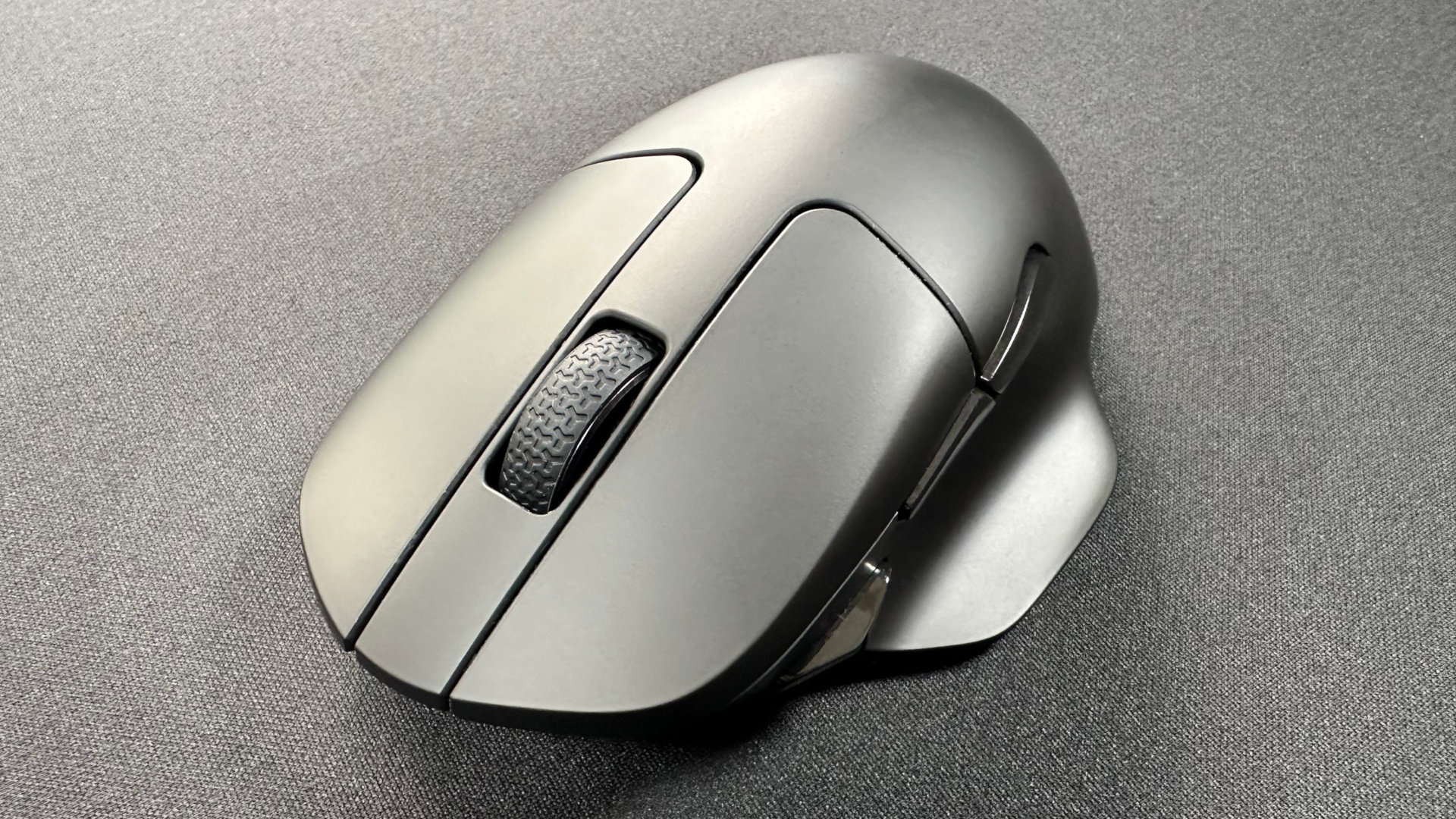Dead in Vinland dumps a viking family on North America's shore
It's a survival game that's basically Swiss Family Leif Erikson.
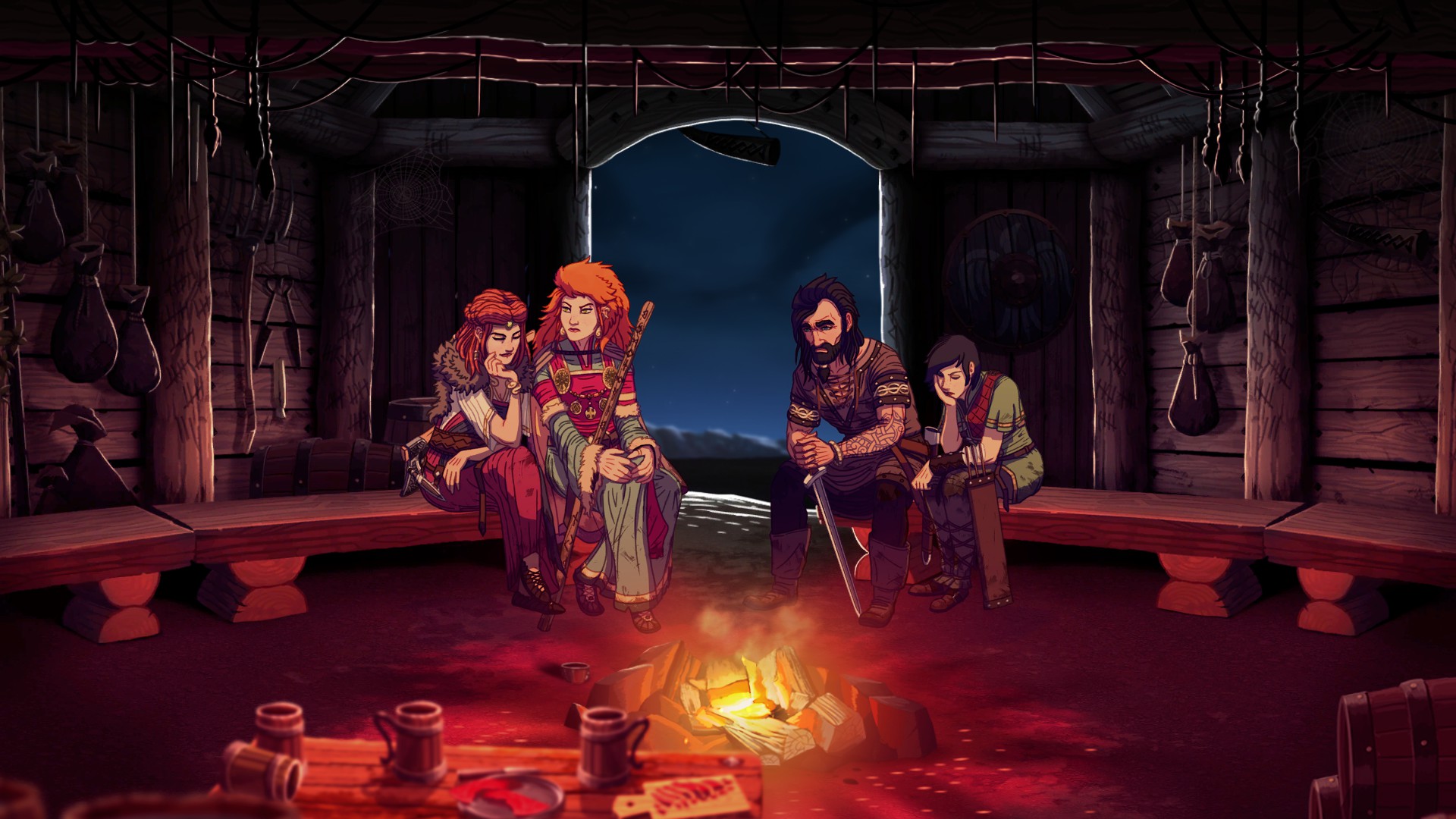
Maybe the phrase "turn-based resource management game" doesn't get you excited. Let me summarize Dead in Vinland a different way—it's a game about helping a family of lost vikings who are shipwrecked on the distant shores of what is probably Canada. That's a unique setup for a survival game, but it's not just the setup that makes Dead in Vinland interesting.
Survival games are often annoying because you spend all your time time scarfing down food and water to keep hunger and thirst meters out of the red, in between frantically punching trees to gather wood. Dead in Vinland isn't like that. You only have to ration out food and water once per day, and nobody punches a single tree.
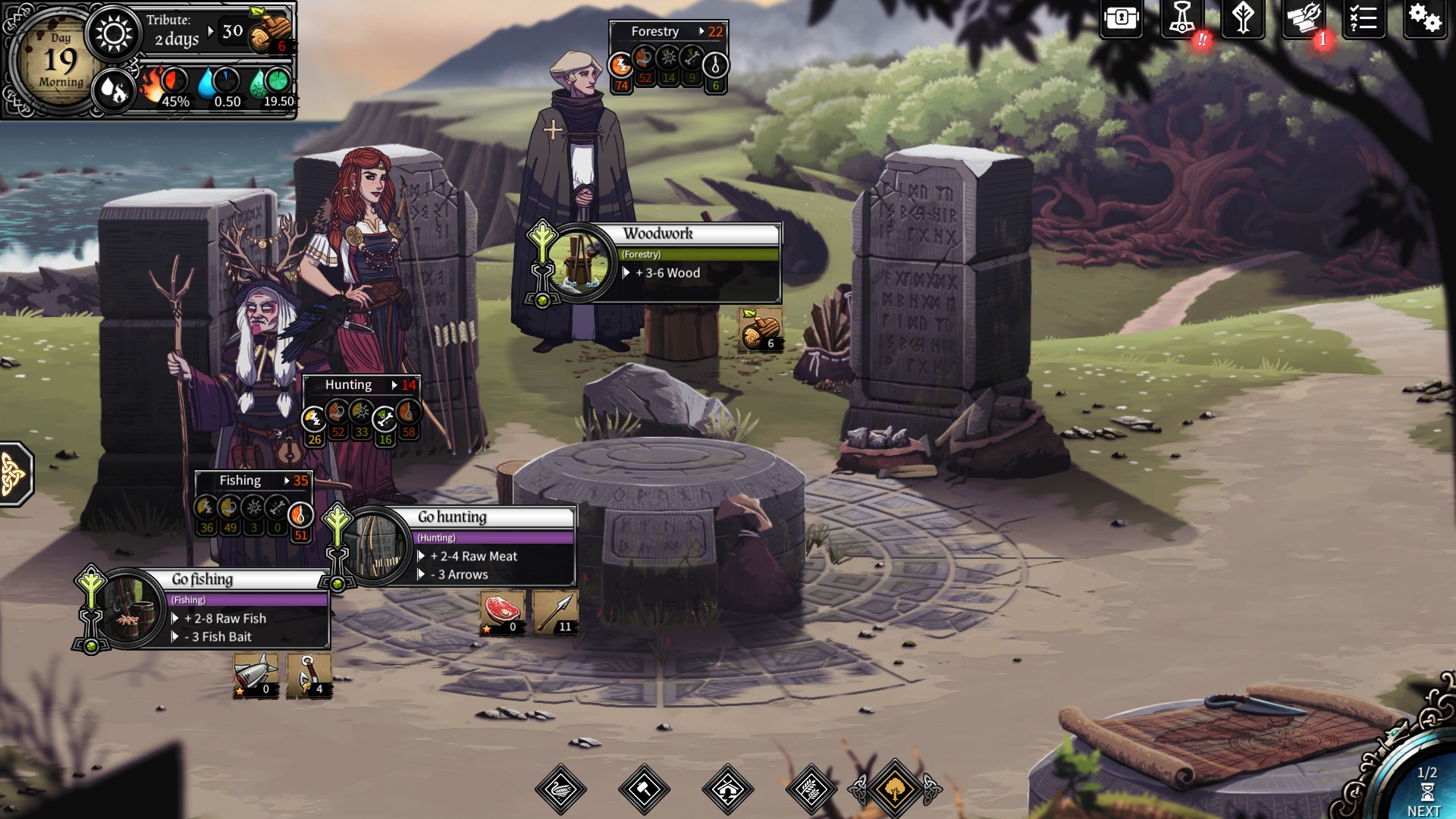
Each day is sliced into three parts. The first two are for work, so you assign each survivor to a job in the morning (maybe putting someone down to fish and someone else to hunt), and then again in the afternoon (maybe one to cook the meat gathered in the morning, while others craft or explore or rest). Then at night everyone gathers around the campfire to eat and talk, little visual novel conversations that deepen the relationships between characters. You might learn that free-spirited daughter Kari doesn't respect her mother, a Welsh freedwoman who is a bit of a homebody, but adores her father, a guilt-racked berserk.
Some characters do well in the front rank, like Blodeuwedd with her shieldmaiden-style ability to guard allies
These quiet times are also opportunities to delve into the new land's mysteries—chief among them, an odd blue woman who might be a goddess. But there are also survivors of a suspicious number of other shipwrecks around, and a whole gang of jerks who demand regular tribute. It's a strange new land full of strange new people.
If you've tried CCCP's previous game Dead in Bermuda this might sound familiar, even down to the blue-skinned deities, but Dead in Vinland improves on that game in plenty of ways. One is the art style, which is a bit reminiscent of The Banner Saga and makes picking up and putting down these little people feel like playing with well-modeled figurines. It's also a lot easier to read at a glance than Bermuda, with icons that make it simpler to keep track of who is tired and who is depressed—although the icon for depression being a noose seems in poor taste.
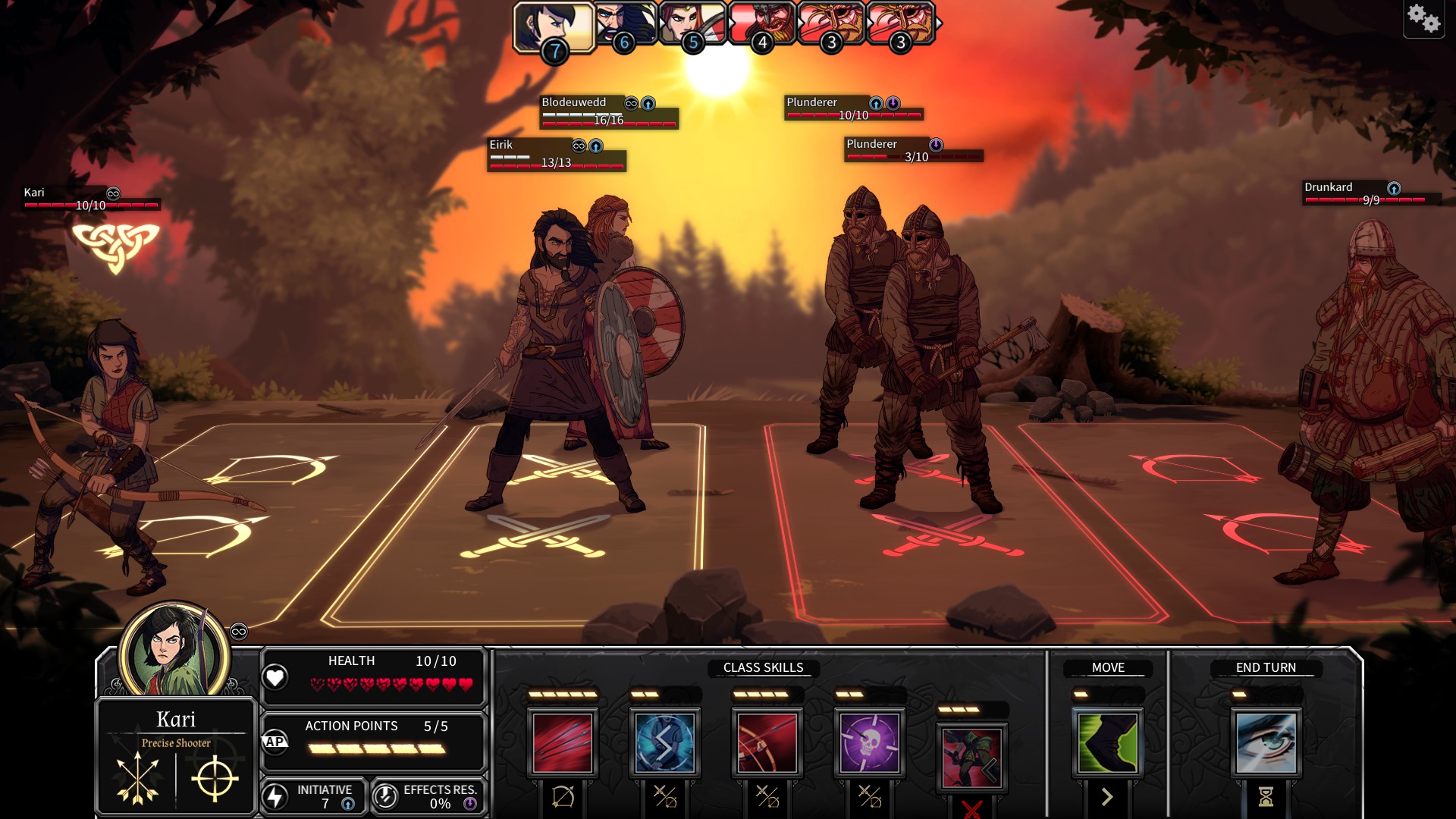
The biggest difference between the two games is that Dead in Vinland has combat. Your vikings and their opponents line up in two rows and take it in turns spending action points to wail on each other in the traditional way. Some characters do well in the front rank, like Blodeuwedd with her shieldmaiden-style ability to guard allies, while Kari is better sniping from the back with her bow. There are interesting decisions to be made even with positioning this limited—Kari's taunt ability provides a nice debuff, but using it forces her into the front row, for instance.
After 18 days of fighting people with axes and grimly scraping a living out of the wilderness, I overworked Eirik the berserk and he died of fatigue. It's an instant game over when any of the core family members die, which I prefer to the protracted failure cascade of Dead in Bermuda—someone would die and it would depress someone else so much they walked off a cliff, which would depress someone else so much they'd follow, and so on.
Keep up to date with the most important stories and the best deals, as picked by the PC Gamer team.
Instead, Dead in Vinland is over fast. You get a summary of how well you did and then you can just reload from that morning to try again. Permadeath's an option but I'm happier without it. This is a story I'd like to see unfold rather than reading the opening chapter again and again till I get it right. I just hope it has a better ending than Dead in Bermuda did, but I'll have to make it a lot further than day 18 to find out.
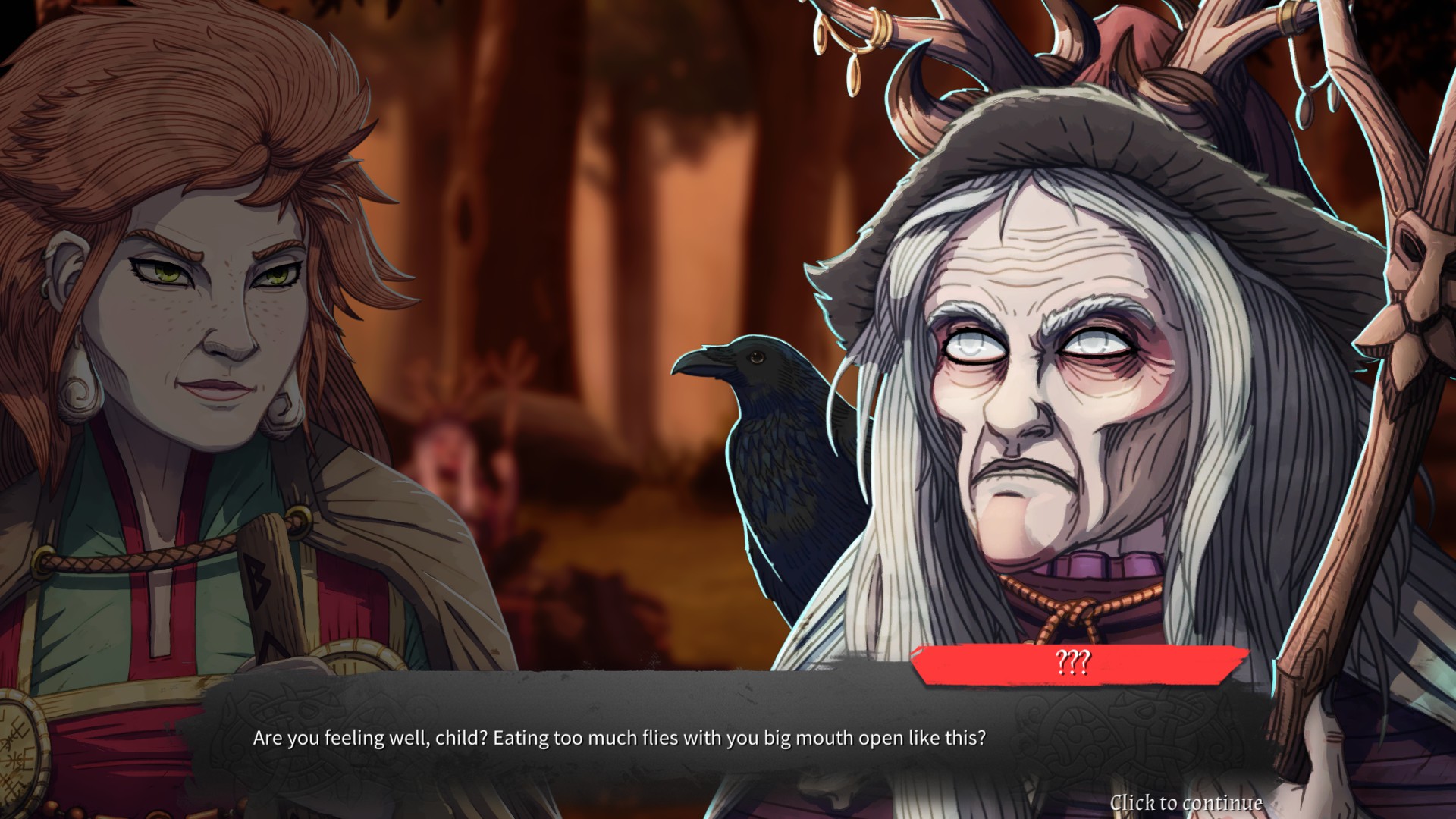
One thing that still needs some work is its writing. There are plenty of intriguing characters, but when the enigmatic witch greets me with, "Eating too much flies with you big mouth open like this?" I wince.
Everything else about It feels solid. It seems like survival games have finally escaped from the doldrums this year, with Subnautica and Frostpunk avoiding the genre's typical problems and finding new things to do with the toolset. Dead in Vinland is shaping up to join them, another game discovering a way to take a tired genre and reset its fatigue meter.

Jody's first computer was a Commodore 64, so he remembers having to use a code wheel to play Pool of Radiance. A former music journalist who interviewed everyone from Giorgio Moroder to Trent Reznor, Jody also co-hosted Australia's first radio show about videogames, Zed Games. He's written for Rock Paper Shotgun, The Big Issue, GamesRadar, Zam, Glixel, Five Out of Ten Magazine, and Playboy.com, whose cheques with the bunny logo made for fun conversations at the bank. Jody's first article for PC Gamer was about the audio of Alien Isolation, published in 2015, and since then he's written about why Silent Hill belongs on PC, why Recettear: An Item Shop's Tale is the best fantasy shopkeeper tycoon game, and how weird Lost Ark can get. Jody edited PC Gamer Indie from 2017 to 2018, and he eventually lived up to his promise to play every Warhammer videogame.

